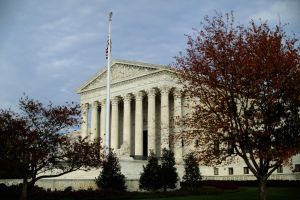Massachusetts High Court Upholds 'Under God' in Pledge of Allegiance as Constitutional
Atheist parents and students wanted the Pledge of Allegiance banned in schools in Massachusetts because it contains the phrase "under God," but the state's highest court has ruled that reciting it does not violate the commonwealth's constitution or laws.
"We hold that the recitation of the pledge, which is entirely voluntary, violates neither the Constitution nor the statute [which prohibits discrimination in Massachusetts public school education] ...," the Massachusetts Supreme Judicial Court said Friday in Doe v. Acton-Boxborough Regional School District.
"Simply being offended by something does not make it a violation of the Massachusetts Constitution," said Senior Legal Counsel Jeremy Tedesco of Alliance Defending Freedom. "As we argued in our brief and as the Supreme Judicial Court found, the recitation is completely voluntary, and listening to the words 'under God' does not violate anyone's constitutional freedoms."
ADF and Massachusetts Family Institute filed a joint friend-of-the-court brief in the case filed by atheist and humanist parents Jane Doe and John Doe, who claimed their children were "offended" by simply hearing the words "under God."
"Although the words 'under God' undeniably have a religious tinge, courts that have considered the history of the pledge and the presence of those words have consistently concluded that the pledge, notwithstanding its reference to God, is a fundamentally patriotic exercise, not a religious one …," the court concluded. "The fact that a school or other public entity operates a voluntary program or offers an activity that offends the religious beliefs of one or more individuals, and leaves them feeling 'stigmatized' or 'excluded' as a result, does not mean that the program or activity necessarily violates equal protection principles."
The American Humanist Association claims that the phrase was added to the pledge during the Cold War era as an explicitly anti-atheist statement to distinguish the U.S. from atheist Russia.
"The Pledge of Allegiance shouldn't be banned merely because someone who is not even required to recite it feels offended," said MFI President Andrew Beckwith, an allied attorney with ADF. "The pledge unites Americans. The court did the right thing in refusing to divide Americans by silencing a voluntary exercise of patriotism just because a few people didn't like it."
The pledge was published in 1892, and Congress passed a joint resolution to insert the phrase "under God" in 1954 with the approval of President Dwight Eisenhower. However, it has faced challenges since before the insertion of the phrase.
"These words will remind Americans that despite our great physical strength we must remain humble," Eisenhower wrote at the time. "They will help us to keep constantly in our minds and hearts the spiritual and moral principles which alone give dignity to man, and upon which our way of life is founded."
"A distinction must be made between the existence of a religion as an institution and a belief in the sovereignty of God," the bill's sponsors said at the time. "The phrase 'under God' recognizes only the guidance of God in our national affairs."





























